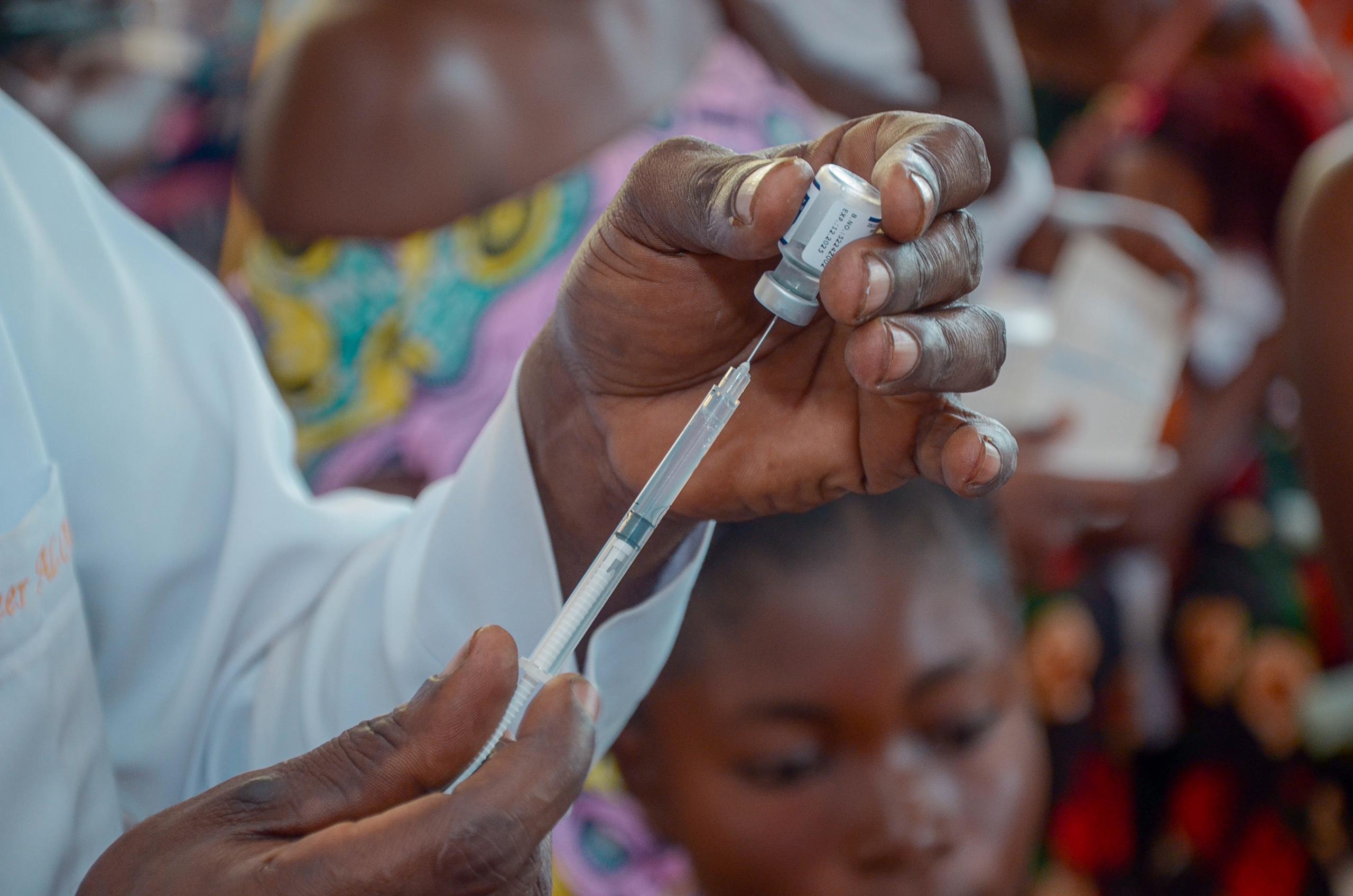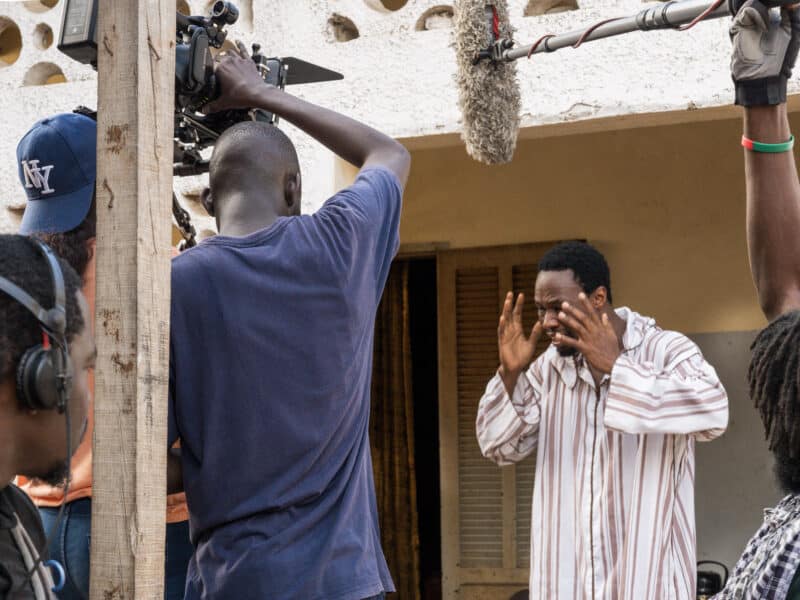Vaccines against malaria, the mosquito-borne disease that kills hundreds of thousands of children in Africa each year, have finally arrived, and the Johns Hopkins Center for Communication Programs is working with governments and other agencies in several countries to encourage caregivers to bring in their young children for the four-dose vaccine.
The malaria vaccines, the first of their kind, are being rolled out to children between the ages of six months and two years. With support from the U.S. President’s Malaria Initiative and USAID, not only has the CCP-led Breakthrough ACTION project in the Democratic Republic of Congo been responsible for helping to spread the word that malaria vaccines now exist and can protect little children from getting a deadly form of the disease, but it is reminding caregivers of the importance of all types of childhood immunizations and supplements, such as vitamin A.
The world’s burden of malaria is highest on the African continent, which accounted for approximately 94 percent of global malaria cases and 95 percent of related deaths in 2022. There were 249 million malaria cases globally in 2022, leading to 608,000 deaths. Of these deaths, 77 percent were children under five years of age, mostly in Africa.
“Breakthrough ACTION has been invited to make sure that now that malaria vaccines are available for the first time, people embrace them and do not resist them,” says CCP’s Noella Kambaja, a communications officer in the DRC.
CCP is involved in preparing caregivers of young children to receive the vaccine in Cameroon, Sierra Leone, Côte d’Ivoire, Mozambique, Kenya and Uganda. Through Breakthrough ACTION’s work with the RBM social and behavior change working group, CCP has also contributed to global guidance for social and behavior change around these malaria vaccines with WHO and GAVI.
Since September 2024, the DRC team has been collaborating with the Congolese government and other partners to launch a two-month campaign in Kongo Central on reducing vaccine hesitancy and tackling misinformation by promoting positive messaging about the new vaccines at the community level.
They have worked with more than 30 media agencies to raise awareness of the vaccine’s benefits, created weekly interactive programs with health experts to address misinformation and answer community questions about the malaria vaccine. They have also trained community health workers to engage directly with communities, answer questions, and demonstrate how the vaccine is administered, building trust and understanding.
The official launch of the malaria vaccine in the DRC was in late October. Now, Breakthrough ACTION-DRC’s efforts are shifting toward a continued mass media campaign to keep the momentum strong and further support vaccine acceptance across communities.
CCP’s Augustin Ngandu, a malaria program officer in DRC, says that many families have been excited to add another tool to their malaria prevention toolbox, alongside insecticide-treated bed nets, medication provided during pregnancy to reduce the risk of malaria for pregnant women and their babies, and the use of seasonal malaria chemoprevention in young children.
“They are open to getting a new tool to keep their children healthy,” Ngandu says.
But people cannot abandon other proven tools adopted over time. Research on the malaria vaccines shows that after one year, the reduction in mortality is reduced by seven percent and after three years, the number is 13 percent.
“We tell caregivers they need to also continue the use of existing prevention methods so that they can prevent malaria not only in small children, but the entire family,” he says. “They have been accepting of this vaccine because if they can help end malaria, that would be big news.”
Children will need a total of four doses of the vaccine to be fully immunized. This requires more visits to the health center than many families typically make. It is also true that DRC is one of the countries with the highest percentage of children who have never received vaccines of any kind, creating another type of communication challenge. DRC’s national malaria and immunization agencies are working together to boost all childhood immunizations.





